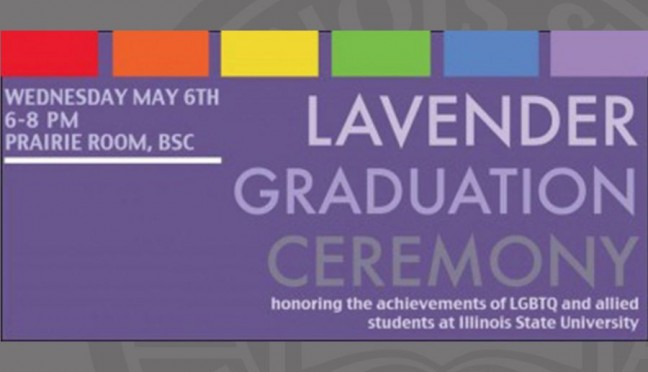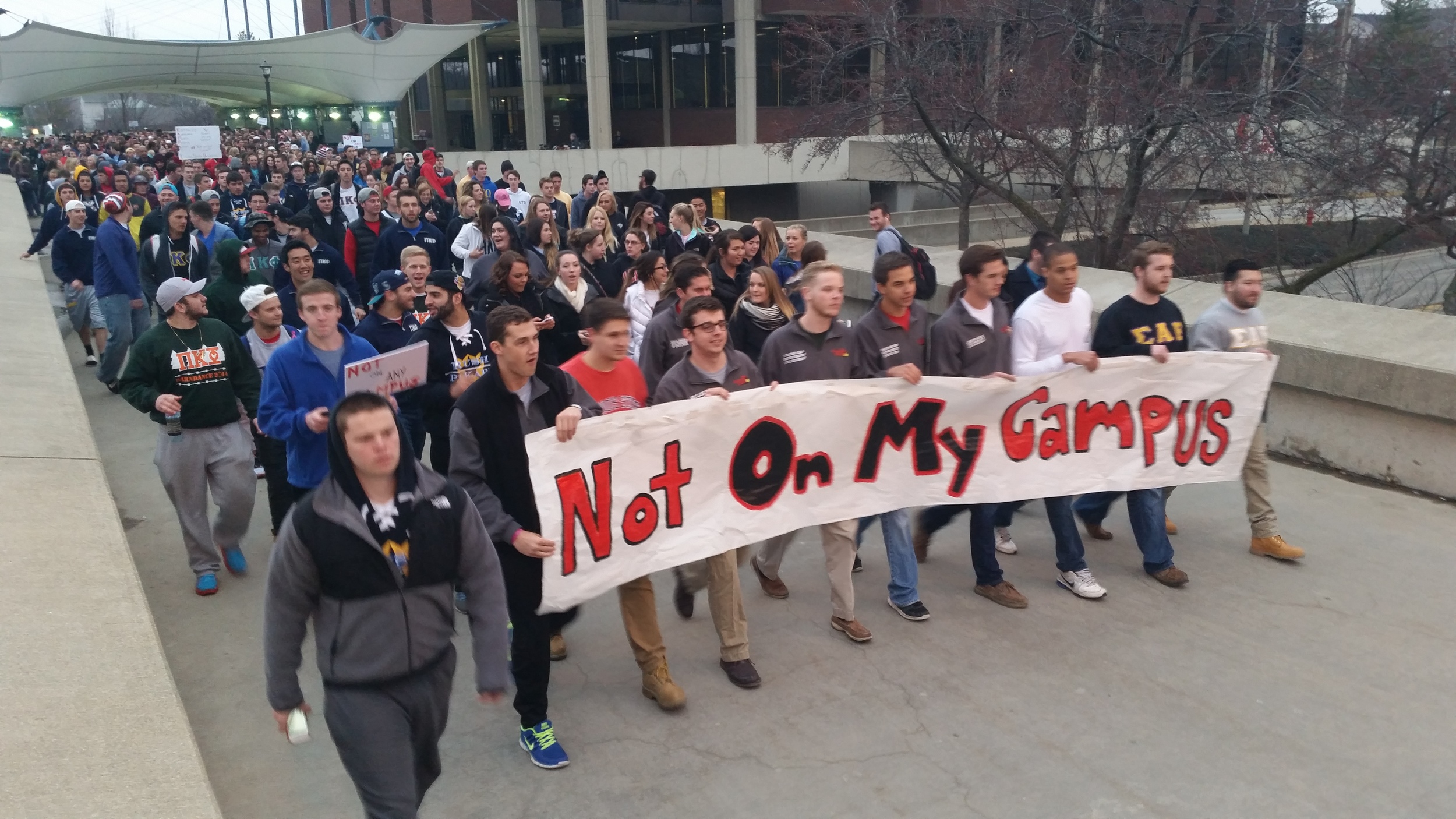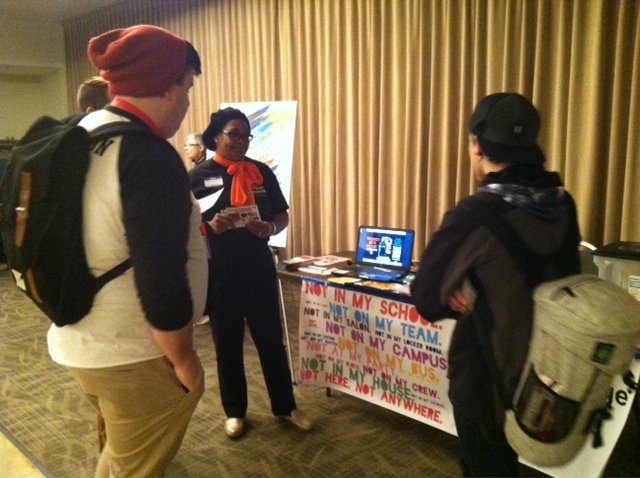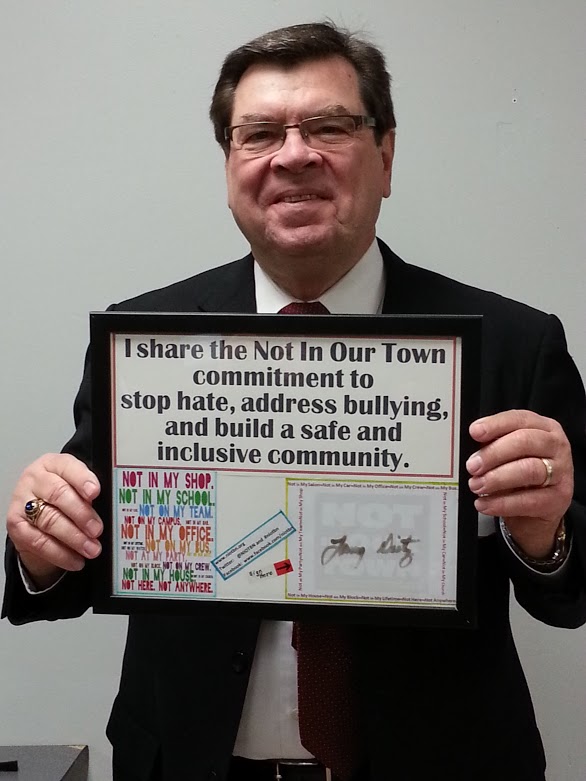A racially inflammatory Twitter post last spring spurred an “awe-inspiring” community response and a new effort to head off hate and bigotry and foster understanding on campus, according to Art Munin, chairman of ISU’s new Inclusive Community Response Team.
Munin, ISU assistant vice president and dean of students, reports the recently debuted effort is designed to help address essentially “any identity-based issue” on campus, from overt bigotry (such as the racist graffiti recently found on an Illinois Wesleyan University sidewalk) to more subtle “bias-related” incidents or “microaggression” – frequently unintended, often routine discrimination in interactions with those of a different race, culture, faith, or gender identity. In short, activity “that just doesn’t reflect the values and diversity we espouse at Illinois State University,” Munin said.
The 10-member response team includes junior Patrice Gooden, secretary of diversity affairs for the ISU Student Government Association, as well as representatives of the ISU’s provost office, counseling and housing services, Milner Library, University College, the ISU Police Department, the vice president of student affair, and the Office of Equal Opportunity, Ethics, and Access (OEOEA). Visit the team’s website at http://studentaffairs.ilstu.edu/who/diversity/icrt/.
“This group is to help provide a place to support, listen, and remedy, but hopefully also to do some proactive work to help prevent these things from happening,” the Southside Chicago native and first-generation college student related. “Previously, there just wasn’t a mechanism to draw all these entities together so we’d be talking on a regular basis.
“This is tough – it’s difficult, emotional, intellectual work, and it’s work that sometimes doesn’t start until folks get to college and they start having these conversations. I know that was the case for me – I didn’t really start opening up these dialogues until I started going to college. You have 18 years or so of one way of programming and thinking, and then college is going to ‘disrupt’ that. Higher education should be an intellectually and emotionally disruptive process. This isn’t about making you think one way – it’s about challengi9ng you to think, to think critically, and ask questions of why.”
Munin, an Eastern Illinois University/Loyola psychology/student affairs specialist with a second masters in multicultural communications from DePaul University, applauded ISU President Larry Dietz’ rapid public response last spring to a student Twitter post putting a racist spin on African-American protestors in the wake of alleged police abuse -- “Dr. Larry Dietz is very clear about his convictions related to diversity and justice.” The subsequent proposal to form a response team received Dietz’ immediate “blessing,” he noted.
Munin also was gratified by the proactive response of ISU fraternities and sororities to nationwide reports of fraternity racism and abuse, including a cross-campus demonstration walk. Under the umbrella of the Dean of Student’s office, he emphasizes that “the Greek community answers to me,” and he has been active with sorority recruiters and the Interfraternity Council, particularly in fostering messaging on “diversity and justice.”
“That march on the campus, we didn’t organize that – the students did,” Munin stressed.
However, students who have been the victims of discrimination often have not known where to file a report or complaint or even “that we want to know about that,” he acknowledged. The new team will serve as a clearinghouse for accountability and follow-through (“I’m hopeful that more students will come forward and share their stories with us”).
Student discrimination of harassment reports will move first through Munin, who will share them with OEOEA and/or the campus police, if a reportable crime has been committed. The response team also will review complaints with an eye to potential remedies or actions.
The team also will meet regularly to review campus-related events, community developments that affect the university and students, ways to improve communications and “messaging,” and available resources to help promote diversity and reduce or prevent discrimination.
“There’s already so much great stuff going on here, but we don’t connect all the dots and share that information,” Munin maintained. “That sharing of information will continue to be crucial to this new entity.”
Part of the problem is the insular nature of various campus communities and cultural groups, and general discomfort with direct confrontation of racial and related issues. ISU’s administration collects considerable data on “who comes to events and participates in events,” Munin said, but the team will attempt to focus as much on “who wasn’t there – who did we not reach, and who was not participating?”
Social media can be a double-edged sword in building cross-cultural bridges, as evidenced by last spring’s racial posting episode. But “to see the response from the community to it afterwards was just awe-inspiring,” recalled Munin, who sees great value in online communications and web-based social justice information sharing and the “systemic approach” to bias and bigotry social media provides.
Another priority is recognition of previously disenfranchised or underserved student constituencies. Munin was instrumental in launching ISU’s new “Lavender Graduation” to acknowledge the special accomplishments of LGBT students, and he will meet this week with students and student groups – including Greek organizations -- to discuss the possibility of a similar ceremony for Latino students next May.
Munin meanwhile is excited by high-profile campus activities such as this weekend’s India Festival on the campus quad, and is hoping families from around the Twin Cities will drop by to help make the cultural celebration “a truly community event.” ISU’s basic “family friendly” nature that drew him to Central Illinois.
“You can include everyone, and that just makes it a warm environment,” Munin said.
Inclusive Community Response Team
What is the Inclusive Community Response Team?
The Inclusive Community Response Team (ICRT) serves students by fostering an open and inclusive campus and responding to instances of hate and bias.
What does ICRT do?
- SUPPORT – provide students with care and assistance when faced with a bias-related incident
- RESPOND - review reported bias-related incidents affecting students and refer to appropriate University and community entities
- MONITOR – examine the student experience for trends and issues which may affect the campus climate
- EDUCATE – build understanding within the campus community about the value of diversity and social justice
How do I report an issue?
- Any student, faculty, staff, or community member can file a report with the ICRT. There are several ways to file a report:
- Email
- ICRT@ilstu.edu
- When filing a report via email please be as specific as possible. Items to consider including are: date, time, specific location, names of people involved, descriptions of people involved (if names are not known), and specific details regarding the issue. You are able to include files (e.g. pictures) with the email if available.
- If you supply your name and contact information, a member of the ICRT will follow up with you within two business days.
- Online
- Public Incident Reporting Form – The University provides this form to report potential crimes/incidents.
- By phone or in person
- Dean of Students Office: 309-438-2008309-438-2008; 144 Bone Student Center
- Illinois State University Police Department: 309-438-8631309-438-8631; 105 Nelson Smith Building
- University Housing Services: 309-438-8611309-438-8611; Office of Residential Life Building
- Office of Equal Opportunity, Ethics, and Access: 309-438-3383309-438-3383; 208 Hovey Hall





